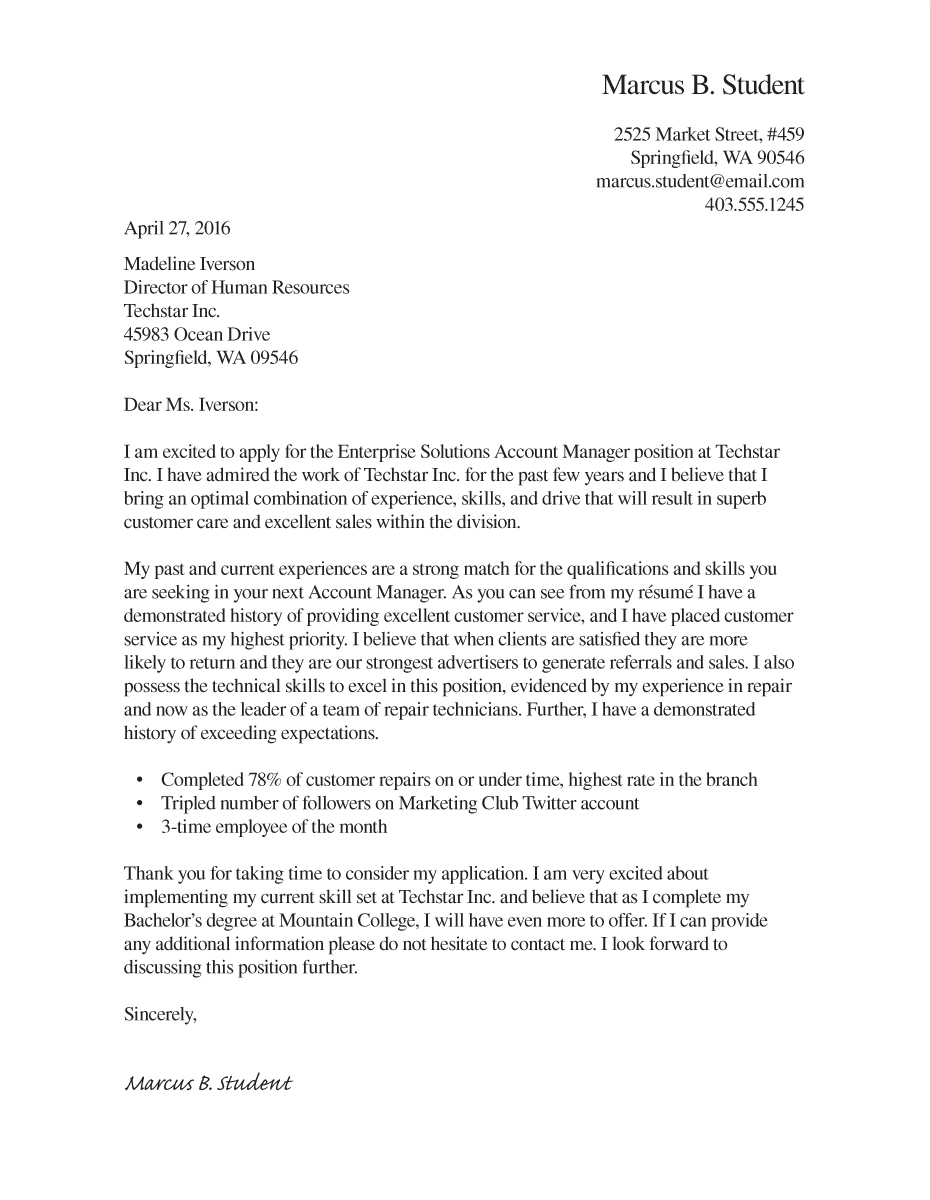Write a Cover Letter
Once you’ve identified an open position that interests you, it’s time to work on a cover letter to accompany your résumé. Whereas your résumé can be somewhat generic — you might have a few versions highlighting different sorts of experiences — your cover letter should be highly tailored to the organization and position for which you’re applying. This document is the place where you explain exactly how your previous experiences have prepared you to excel in this next job.
Cover Letter: A formal letter in which you introduce yourself, your interest in a job, and your appropriate skills and qualifications.
As you can see in Figure A.2, this document should be formatted like a formal business letter, with your name and contact information at the top, followed by the date and the address of the company to which you’re sending your application. If there’s a contact person associated with the job posting, address that person by name. If no contact information is provided, you can use “To Whom It May Concern.” In the first sentence of your letter, identify the position that you’re applying for and comment on your excitement about the position. You might follow this with another sentence that elaborates on why you’re interested in working for this organization and why you’re a good fit for the role.
363

364
In the body of the document, zero in on specific aspects of the job description and draw connections to positions you’ve held in the past. This is the place to emphasize your transferable skills and demonstrate why they’ve prepared you to succeed in the post you’re seeking. For example, April is applying for a pharmaceutical sales position that requires the employee to “develop strong relationships with customers through face-to-face interaction.” In her cover letter, she might describe how she built close relationships with advertisers for her college’s student newspaper. By emphasizing in-person visits to local businesses and the number of repeat orders she received from advertisers, she could make a convincing case that she’s well prepared for the responsibilities of her target position.
In your conclusion, it’s appropriate to thank the reader for his or her time and consideration. You might also summarize the reasons for your interest in the position, and express your interest in discussing the opportunity further during an interview.